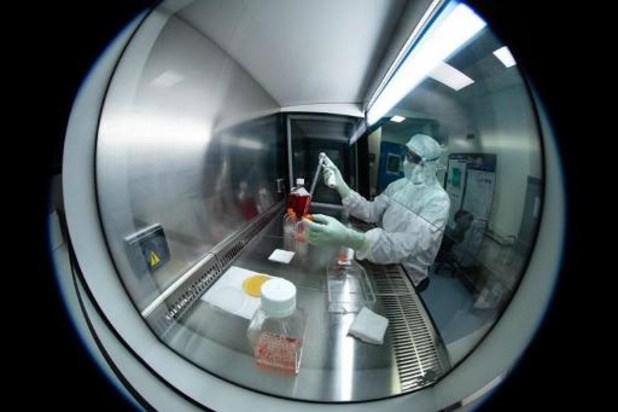The rapid development of a coronavirus vaccine does not mean there is any inherent risk, and proper policy has been followed, according to Belgian health experts.
Facing several months focused on the Covid-19 vaccines and their administration, officials explained why - despite the accelerated development - they will be safe for use.
"If all goes well, the vaccines against the coronavirus, or at least some of them, will be developed and registered within only a year," said virologist and interfederal Covid-19 spokesperson Steven Van Gucht.
While it usually to seven to eight years before a vaccine or medicine was declared ready for use in the past, these vaccines must still meet the same safety requirements as other medicines.
"Just like so many pills or capsules we take so often," he said, adding that "no health authority in Western society" has taken even the slightest risk.
Advanced technology
When the virus had only just been discovered at the beginning of January, it was possible to determine its genetic composition in just a few days, thanks to enormous advances in technology.
"As a reminder, the outbreak with a then-unknown virus was first reported on 31 December in Wuhan," Van Gucht said. "Nearly 10 days later, on 10 January, the full genetic code of the coronavirus was known and published."
It was made public, and distributed all over the world so that laboratories across the globe could start research into a vaccine very early on, according to him.
Not starting from scratch
Additionally, researchers did not have to start from scratch, as two dangerous coronaviruses were already known to them.
"Namely the coronavirus that caused SARS in 2003, and another coronavirus that has been causing MERS in the Middle East since 2012," Van Gucht said.
"Vaccines were already being developed against these two known coronaviruses, and they could be adapted to (also) be effective against this new coronavirus," he said, adding that the same happened with vaccines which were initially intended against the Ebola virus.
Related News
- Moderna expects European vaccine approval on 12 January
- Everyone will suffer minor side effects from Covid-19 vaccination, Van Gucht says
- Over half of Brussels doesn't want a Covid-19 vaccine in January
Rolling review
"Additionally, research on the coronavirus vaccine has been given priority over many other projects over the past year," Van Gucht said, adding that this happened in close cooperation with registration authorities around the world, such as the European Medicines Agency (EMA) and the US Food and Drug Administration (FDA).
Normally, three clinical stages are carried out one after the other in these studies. "But here, time was gained by partially overlapping the three phases," he said.
This 'rolling review' system has made it possible to analyse an enormous amount of data on the efficacy and safety of these vaccines in a short space of time, both at company and government level.
"The data from these clinical trials have been assessed on an ongoing basis by independent bodies, rather than just once at the end," Van Gucht said.
Early investment
On top of that, governments, as well as the European Commission, joined forces to invest in production facilities long before the vaccines were authorised.
"This entails a great risk, and that risk still exists: that for many of these companies, the investment could be completely lost if the candidate vaccine were to prove ineffective, or unsafe, and ultimately not approved by the authorities," Van Gucht stressed.
On the other hand, he clarified, this was the only way to have enough vaccines ready to launch a vaccination campaign in the days and weeks after obtaining marketing authorisation.
Large clinical trials
"By reviewing the scientific literature of the last 50 years, the American agencies have found that almost all vaccine side effects occur within a few days after administration, up to six weeks after administration," Van Gucht said.
Based on that information, vaccination registration dossiers, both in Europe and the US, could only be submitted after the volunteers had been followed up for at least eight weeks.
"An additional two weeks were therefore already taken as an additional precaution," he said.
Van Gucht stressed that the newly developed coronavirus vaccines were tested in large clinical trials, in which larger groups than usual were vaccinated.
However, almost all people will still experience some minor side effects from being vaccinated, such as a slight headache, some fatigue, or even a slight increase in body temperature.
“These are mild effects, which will pass. And they usually mean that the vaccine does its job properly," Van Gucht said. "2020 was the year of the virus, let us hope that 2021 will be the year of the vaccine."
Maïthé Chini
The Brussels Times

